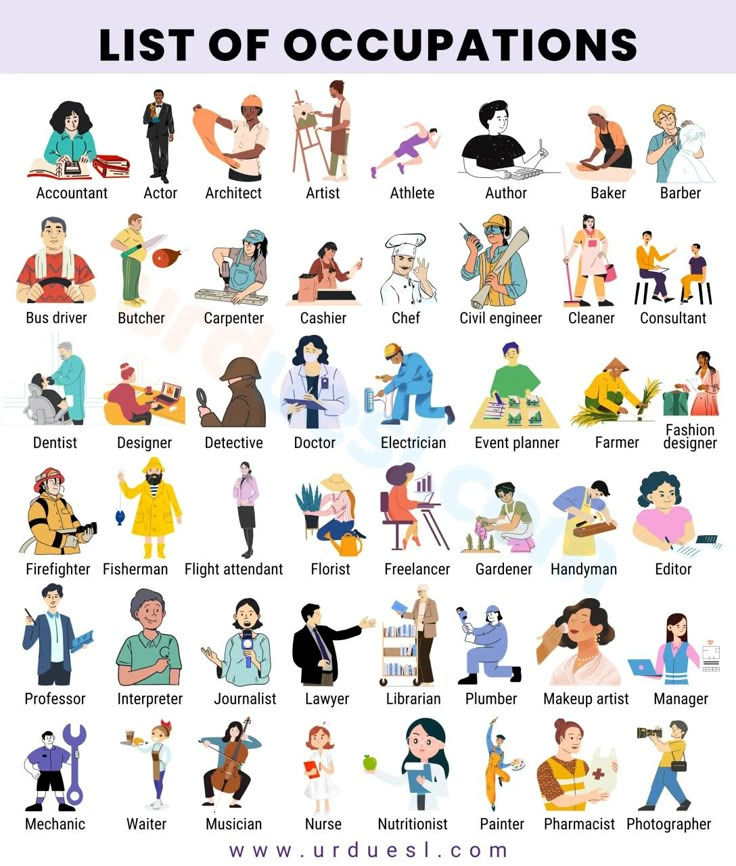Is Auditing a Good Career? Pay, Growth, Paths, and How to Get Started
Overview: Is Auditing a Good Career?
Auditing can be a strong career for those who enjoy analytical work, structured advancement, and steady demand across industries. U.S. government data indicates accountants and auditors have a median annual wage near the low-$80,000s and a faster-than-average job growth outlook over the next decade, with regular overtime during peak periods such as year-end and tax season [1] . Entry-level auditor pay may start in the high-$50,000s to low-$60,000s, with total compensation rising as you gain certifications and experience [2] . Midlevel and senior roles in firms and companies can trend significantly higher, especially in hot markets and in-demand specialties [3] .
Pay, Growth, and Work Realities
Compensation : According to PayScale, the average U.S. pay for a staff auditor is about $60,000 annually, with entry-level near $58,000-$60,000 and experience pushing totals higher over time [2] . Broader government data combining accountants and auditors shows a median wage of $81,680 (May 2024), reflecting the higher pay levels once professionals move beyond entry roles and into public, internal, or specialized audit paths [1] . Market salary guides also show rising starting offers in accounting and audit-related roles, particularly where firms need risk, automation, ERP, and analytics skills [3] [4] .
Job outlook : Employment for accountants and auditors is projected to grow about 6% from 2023-2033, faster than average, with roughly 130,800 openings each year on average due to growth and replacement needs [1] . This suggests steady demand for audit talent, especially as regulatory requirements, financial reporting complexity, technology risks, and corporate governance expectations continue.
Work patterns : Most auditors work full time; overtime is common during peak cycles-quarterly reviews, year-end close, and busy season in public accounting [1] . Candidates should be ready for time-bound engagements, travel (varies by employer), and tight deadlines.
Who Thrives in Auditing
Strengths : Detail orientation, skepticism, communication, and comfort with evidence-based conclusions are vital. Those who enjoy learning businesses quickly, assessing controls, and presenting practical recommendations often find the work engaging. Curiosity about systems (ERP, data flows, access controls) is increasingly valuable in modern audit teams [3] .
Challenges : Auditing can involve repetitive testing, documentation, and strict methodology. Busy-season hours affect work-life balance, especially in public audit. Professionals manage this by setting boundaries, using project plans, and seeking teams with sustainable resourcing models. Many auditors later move into controllership, risk, analytics, or finance roles to adjust scope and seasonality.
Career Paths in Auditing
Public Audit (External) : Work at firms that audit financial statements, typically progressing from associate to senior, manager, and potentially partner. Pay tends to rise meaningfully at senior and manager levels, and firm experience can be a strong springboard into corporate roles. Labor markets have been offering higher starting compensation to attract talent, which benefits new entrants [3] [4] .
Internal Audit : In-house teams review controls, operational efficiency, and compliance. Internal audit can offer broader exposure to business processes and a pathway into finance leadership, risk management, or compliance roles. Salaries vary by industry and geography, with competitive ranges for experienced auditors per market guides [3] .
IT/Technology Audit : Focus on systems, access, cybersecurity controls, and data integrity. Given the demand for AI, automation, and ERP skills, IT auditors may command premium pay in some markets, and their skills transfer to security, risk, and data roles [3] .
Compliance and Risk : Overlapping with audit, these roles emphasize regulatory adherence, policy, and enterprise risk. Growth in governance and evolving regulations sustains demand and provides lateral options across financial services, healthcare, tech, and manufacturing [1] .
Credentials That Boost Prospects
Education : A bachelor’s degree in accounting or a related field is typically required for auditing roles, according to the U.S. Occupational Outlook Handbook [1] .
Licensure and Certifications : Becoming a CPA often improves job prospects and can accelerate promotion and pay in both public and internal audit tracks. Other respected credentials include CIA (Certified Internal Auditor) and CISA (Certified Information Systems Auditor). While exact premiums vary by market and employer, salary guides and hiring trends consistently show higher demand and compensation for candidates with advanced credentials and specialized skills [1] [3] .
How to Get Started: Step-by-Step
1) Build your foundation : Complete an accounting-focused bachelor’s program or equivalent coursework. If you plan to pursue the CPA, confirm your state’s education requirements (often 150 semester hours). You can check requirements through your state board of accountancy; search for “State Board of Accountancy CPA requirements” along with your state. The Occupational Outlook Handbook confirms the degree baseline for auditors [1] .

Source: blog.weareorbis.com
2) Choose your track : Decide among public audit, internal audit, IT audit, or compliance. You can start in public audit for broad exposure and then move in-house, or begin in internal/IT audit if you prefer industry depth or technology. Use current salary guides to benchmark offers by city, industry, and level [4] [3] .
3) Secure relevant internships : Target busy-season internships at audit firms or internal audit departments. Ask about client industries, travel, and technology exposure (ERP, data analytics). When you compare offers, consider mentorship and training, which can influence your learning curve and long-term earnings [3] .
4) Plan for credentials : If you aim for the CPA, map your exam timeline to avoid prolonged delays. For internal/IT audit, evaluate CIA or CISA pathways. Many employers may offer exam fee support or study time allowances; you can ask recruiters or HR about these benefits when discussing offers, a practice consistent with current hiring trends emphasizing attraction and retention [4] .
5) Develop technology skills : Gain proficiency in Excel, data analytics (e.g., SQL basics), and ERP exposure. Salary and hiring reports note rising demand for AI, automation, cybersecurity, and ERP capabilities-skills that can differentiate your resume and accelerate pay progression [3] .
6) Prepare for busy season : Build project management habits-use detailed work plans, clarify scope early, and schedule recurring check-ins. During peak cycles, proactively align with clients and stakeholders to reduce rework. Government data confirms overtime is typical at certain periods, so planning is crucial [1] .
Advancement and Exit Options
Internal promotions : In both public and internal audit, clear rungs exist (associate, senior, manager). As responsibilities expand-from testing to leading engagements to managing portfolios-compensation generally increases. Market guides show higher mid-career and senior ranges for in-demand specialties and major metros, which you can use to negotiate [3] [4] .
Lateral moves : Auditors often transition into controllership, FP&A, risk, compliance, or data analytics roles. The auditing toolkit-controls, financial statements, process mapping, and evidence-translates well, and the broader occupation’s steady demand supports mobility across sectors [1] .
Specialization : Consider niche sectors like financial services, healthcare, or technology; or focus on IT/ERP, cyber control frameworks, or ESG reporting and assurance where applicable. Salary guides indicate employers are prioritizing candidates with cross-functional tech and risk skill sets [3] .
Is Auditing Right for You? A Practical Self-Check
Ask yourself :
- Do you enjoy structured analysis, documentation, and evidence-driven conclusions?
- Can you handle deadline-driven cycles and occasional overtime during peaks [1] ?
- Are you motivated to pursue credentials like CPA, CIA, or CISA to unlock higher pay bands [1] [3] ?
- Do you like learning how different businesses operate and improving processes?
If you answer yes to most of these, auditing may be a good fit. If not, adjacent roles such as corporate accounting, FP&A, or risk analysis may suit your preferences while leveraging similar skills [1] .
Actionable Next Steps (No-Assumption Guidance)
Explore requirements : Check your state board of accountancy for CPA rules by searching “CPA requirements” with your state name. Requirements vary and may include 150 credit hours and specific coursework. If you target CIA or CISA, visit the official organizations’ websites by searching for those credential names and confirming you are on the legitimate association pages before proceeding.
Benchmark offers : Use reputable, current salary guides to compare ranges by city and level. You can review the latest finance and accounting hiring trends and salary ranges from established firms like Robert Half to understand market conditions and set negotiation targets [4] [3] .
Target internships and entry roles : Search for “audit associate,” “internal auditor,” or “IT auditor” roles on major job boards and company career sites. When applying, tailor your resume to highlight controls testing, data work, or ERP coursework. Ask interviewers about training, mentorship, client mix, and technology-factors that influence your early growth and work-life balance.

Source: educba.com
Plan study timelines : If you pursue the CPA, create a 6-12 month study plan aligned with your work calendar. For CIA/CISA, map exam parts and prerequisites. You may ask employers about exam support, which some companies offer as part of their talent strategies [4] .
Build a portfolio of skills : Combine financial statement knowledge with process mapping and analytics. Even basic SQL or data visualization can differentiate you in audit interviews. Hiring trends highlight demand for professionals who blend accounting with technology, automation, and ERP exposure [3] .
Bottom Line
Auditing is often a good career for those seeking stability, structured progression, and varied business exposure. Pay can grow meaningfully with credentials and specialization, and demand is projected to remain solid. Expect cyclical workloads, embrace continuous learning, and use market data to guide your path and negotiations [1] [2] [3] .
References
[1] U.S. Bureau of Labor Statistics (2025). Accountants and Auditors: pay, outlook, work environment.
[2] PayScale (2025). Staff Auditor salary data and experience trends.
[3] Robert Half (2025). Finance and Accounting Salaries and Hiring Trends.
[4] Robert Half (2025). Salary Guide: starting salaries, hiring trends, and market insights.


